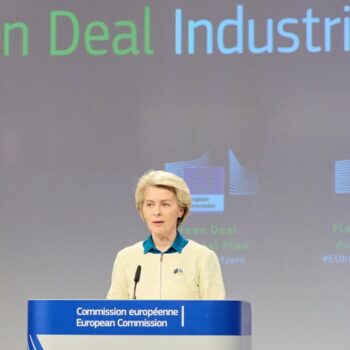Political events over the last three months, especially the elections in the UK, France and the Netherlands, have had a profound impact on the scenarios for Brexit. The election of President Macron in France and the VVD remaining the largest party in the Netherlands has prevented extreme right-wing Parties gaining power in key European capitals. This has enabled a clear, unified Brexit negotiating mandate to be established across the EU-27 Member States and reduced the likelihood of descending into an “EU in chaos” scenario.
While election results have enhanced unity and stability on the Continent, the surprise hung Parliament in the UK has significantly undermined its authority. Prime Minister Theresa May explicitly called a snap election to enhance her negotiating mandate for a hard exit aligned around promoting national sovereignty over economic cooperation with the EU. Instead the Conservative Party is now left trying to forge a coalition with the Northern Ireland Democratic Unionist Party (DUP), which may prove to be highly fragile. The full implications of the result are still playing out but two clear dynamics are emerging: on the one hand proponents of ‘softer’ forms of Brexit that focus on an economic transition have been empowered to potentially seek a change in the UK’s negotiating position. On the other the instability and weakness of the Government, which may lead to a collapse and fresh elections within the two-year Article 50 period, could result in a crash Brexit outcome and a rise of hostile nationalism as the UK fails to deliver an orderly negotiation process.
There are also indications that inflation in the UK, currently running at over 2.7% following the devaluation of the Pound after the referendum, is starting to negatively impact growth. In the first quarter of 2017 the UK economy grew by only 0.2%, less than half of the Eurozone area average. The Governor of the Bank of England, Mark Carney, has now linked Brexit impacts to falling real incomes in the UK. However, these Brexit impacts were not a major feature of the UK election campaign and so have not yet fully fed through into the public conversation.
These events have led to revised political scenarios as shown in figure 1 below. The political space has collapsed as the sovereign transition scenario (which represented the UKs pre-election negotiating position) and EU in Chaos options are now less likely to emerge. The current dynamics therefore favour either focusing on an economic transition, which seeks to establish stable transitional arrangements and maximise economic cooperation in the short to medium-term (such as through retaining membership of the Customs Union), or a crash Brexit represented by the hostile nationalism scenario as the most likely outcomes. The crash outcome may not start with hostile nationalism, during the opening negotiations both sides have emphasised trust building, but if there is a collapse it is likely to generate negative attitudes with the public, driven by forces in the media. If ‘punishment and recrimination’ became a dominant public message this would generate significant negative momentum and make future cooperation harder to achieve.
Figure 1: Q2 updated political scenarios

Assessing the scenarios against five key energy and climate change objectives shows that the economic transition outcome offers positive benefits for both the UK and remaining EU-27 member states, while a crash Brexit would harm both sides (although this outcome is slightly less damaging for the EU-27). As shown in figures 2 and 3 below, an economic transition outcome would be favourable for the UK retaining access to the Internal Energy Market (IEM), reducing energy costs and avoiding the Republic of Ireland becoming an energy island. This scenario would also avoid a cliff-edge for business and investors and provide a strong basis for continued cooperation on climate and environment issues. In contrast, the hostile nationalism outcome would lead to a fragmented energy market, increasing the costs of decarbonisation for both sides, creating significant uncertainty for business and investors, and undermining cooperation. Major energy exporters such as Russia would be significantly empowered in this scenario. There is also a high likelihood of severe disruption to the UK’s civil nuclear programme in the result of a crash Brexit as it may also crash out of Euratom Treaty without being able to agree alternative arrangements.
To date energy and climate issues have not been at the centre of the Brexit negotiations. Events over the last three months have polarised potential outcomes. Given a choice between transition or crash there is an urgent need to promote a cooperative track for energy and climate issues. If this could gain widespread support across civil society, business and academic groups it could be a powerful force in driving towards an economic transition scenario.
Figure 2: Economic transition scenario energy and climate impacts

Figure 3: Hostile Nationalism scenario energy and climate impacts



